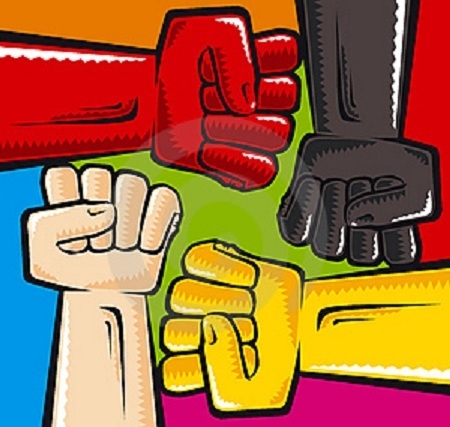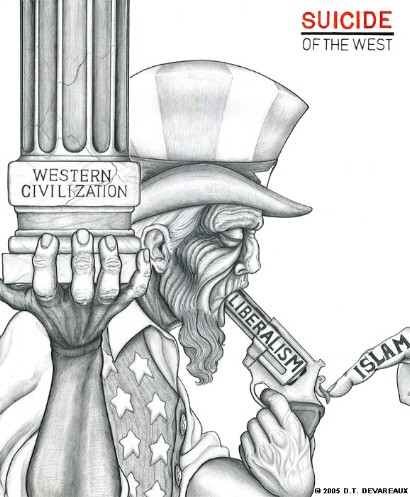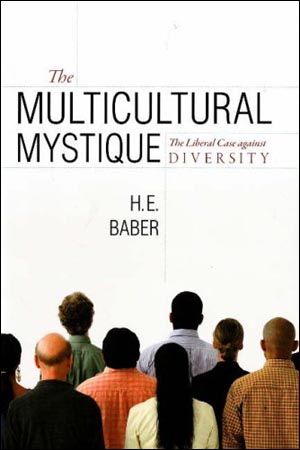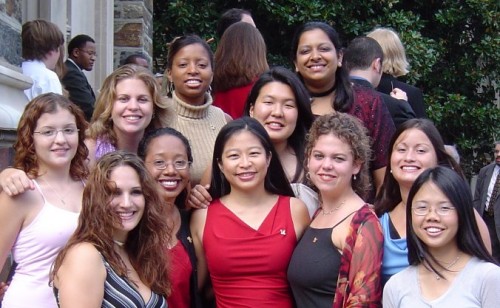
Das Rivkin-Projekt zur Unterwanderung der französischen Jugend
Als der US-Botschafter Charles Rivkin im Jahr 2010 eine Delegation von anderen Mitgliedern des Pacific Council on International Policy nach Frankreich einlud, hatte er ein Programm zur Amerikanisierung Frankreichs umrissen, das hauptsächlich die Benutzung der moslemischen Minderheiten und die Indoktrinierung der französischen Jugend mit globalistischen Idealen im Sinne der Konzerne umfaßte. Das dabei beschworene Schlagwort war das historische Engagement Frankreichs und Amerikas für die „Gleichheit.“
WikiLeaks veröffentlichte das „vertrauliche Programm“. Es trägt den Titel „Minority Engagement Strategy.“ [1] Hier umreißt Rivkin ein Programm, das eine schamlose Einmischung in die inneren Angelegenheiten einer souveränen Nation ist und in einem tieferen Sinne die Änderung der Einstellungen von Generationen moslemischer und französischer Jugendlicher anstrebt, sodaß sie zu einer neuen globalistischen Synthese verschmelzen, oder zu dem, was man eine neue Menschheit nennen könnte: Homo oeconomicus, oder was der Finanzanalyst G. Pascal Zachary „das globale Ich“ nennt [2], um zu verwirklichen, was Rivkin als das „nationale Interesse“ der USA beschreibt.
Rivkin beginnt, indem er sagt, daß seine Botschaft eine „Minority Engagement Strategy“ geschaffen hat, die sich primär an die Moslems in Frankreich richtet. Rivkin erklärt als Teil des Programms: „Wir werden auch die Bemühungen verschiedener Abteilungen der Botschaft integrieren, auf einflußreiche Führer unter unserem primären Publikum abzielen und sowohl materielle als auch immaterielle Indikatoren des Erfolgs unserer Strategie bewerten.“ [3]
Rivkin ist zuversichtlich, daß Frankreichs Geschichte des ideologischen Liberalismus „uns gut dienlich sein wird, wenn wir die hier umrissene Strategie umsetzen… bei der wir Druck auf Frankreich ausüben…“ Beachten Sie die Redewendung „Druck auf Frankreich ausüben.“ Amerikas globale Agenda wird von Rivkin mit seinem Plan der Umwandlung Frankreichs in ein „blühendes, integratives französisches Staatswesen, das uns bei der Förderung unserer Interessen an der Ausweitung von Demokratie und zunehmender weltweiter Stabilität helfen wird“ in Verbindung gebracht. Das Programm wird sich auf die „Eliten“ der französischen und der moslemischen Gemeinschaften fokussieren, aber auch eine massive Propagandakampagne umfassen, die sich an die „allgemeine Bevölkerung“ mit Schwerpunkt auf der Jugend richtet.
Auf hoher Ebene werden US-Offizielle französische Offizielle in die Defensive drängen. Zu dem Programm gehört auch die Neudefinierung der französischen Geschichte in den Lehrplänen der Schulen, um der Rolle der nicht-französischen Minderheiten in der französischen Geschichte Aufmerksamkeit zu schenken. Es bedeutet, daß die Pepsi/MTV-Generation von Amerikanern neue Definitionen der französischen Kultur formulieren und neue Seiten der französischen Geschichte schreiben werden, die mit globalistischen Agendas übereinstimmen sollen. Zu diesem Zweck „…werden wir unsere Arbeit mit französischen Museen und Lehrern fortsetzen und intensivieren, um den in französischen Schulen unterrichteten Lehrstoff in Geschichte zu reformieren.“
„Taktik Nummer drei“ trägt den Titel „Aggressive Öffentlichkeitsarbeit unter der Jugend starten.“ Wie in anderen Staaten, die vom US-Außenministerium und dessen Verbündeten im Soros-Netzwerk, Freedom House, Movement.org, National Endowment for Democracy, Solidarity Center [4] und so weiter ins Visier genommen wurden, stehen unzufriedene junge Leute im Fokus der Veränderungen. Führend in diesen Bemühungen, zielt die „Inter-Agency Outreach Initiative“ des Botschafters darauf ab, „eine positive Dynamik in der französischen Jugend zu erzeugen, die zu einer größeren Unterstützung für US-Ziele und Werte führt.“ Können die Absichten noch klarer ausgedrückt werden? Es ist kulturelle und politische Amerikanisierung.
Hier können wir am leichtesten an der Heuchelei vorbei deutlich sehen, was hinter der Strategie steckt: eine Generation zu formen, „die zu größerer Unterstützung für US-Ziele und Werte führt.“ Diese „US-Ziele und Werte“ wird man den Franzosen als französische Werte verkaufen, auf der Grundlage der bourgeoisen Ideale von 1789, mit denen die französische Ideologie sowohl der Linken wie der Rechten weiterhin belastet ist. Man wird sie zu glauben lehren, daß sie französische Traditionen aufrecht erhalten, statt als Agenten von Veränderungen gemäß „amerikanischen Werten“ zu handeln: den Werten des globalen Dorfes und des globalen Einkaufszentrums. Ein weitreichendes Programm, das eine Vielzahl von Indoktrinierungsmethoden umfaßt, wird umrissen:
Zur Erreichung dieser Ziele werden wir die bereits vorhandenen expansiven Programme für öffentliche Diplomatie ausbauen und kreative zusätzliche Mittel zur Beeinflussung der Jugend Frankreichs entwickeln, neue Medien, Firmenpartnerschaften, landesweite Wettbewerbe, zielgerichtete Veranstaltungen für Öffentlichkeitsarbeit und speziell eingeladene US-Gäste einsetzen. [5]
Das Programm, das sich an die Jugend in Frankreich richtet, ist ähnlich dem, das sich an die Jugend richtete, welche die Vorhut der „samtenen Revolutionen“ von Osteuropa bis Nordafrika bildete. Potentielle Führer werden vom US-Außenministerium in Frankreich aufgenommen und dazu herangezüchtet werden, eine Rolle im zukünftigen Frankreich nach amerikanischem Design zu spielen:
Wir werden auch neue Hilfsmittel entwickeln, um zukünftige französische Führer zu identifizieren, von ihnen zu lernen und sie zu beeinflussen.
Während wir die Ausbildung und die Austauschgelegenheiten für Frankreichs Jugend erweitern, werden wir weiterhin absolut sicherstellen, daß der Austausch, den wir unterstützen, integrationsorientiert ist.
Wir werden auf existierenden Jugendnetzwerken in Frankreich aufbauen und neue im Cyberspace schaffen, die Frankreichs zukünftige Führer in einem Forum miteinander verbinden, deren Werte wir zu formen helfen – Werte der Integration, des gegenseitigen Respekts und offenen Dialogs. [6]
Hier befürwortet Rivkin etwas, das über die Beeinflussung von Moslems in Frankreich hinausgeht. Er sagt, daß ein bedeutender Teil des Programms sich auf die Kultivierung der französischen Jugend, der potentiellen Führer, nach amerikanischen Idealen unter der Fassade französischer Ideale richten wird. Das US-Außenministerium und seine Verbündeten unter den Konzernen und NGOs beabsichtigen, „ihre Werte zu formen.“ Das globalistische Programm für Frankreich wird deutlich genug als Umerziehung der französischen Jugend bezeichnet. Man möchte meinen, daß dies die wichtigste Rolle der französischen Regierung, der katholischen Kirche und der Familie ist, insbesondere der beiden letzteren. Amerikanische Bürokraten und ihre aus verschiedenen Berufen rekrutierten dümmlichen Kumpane sollen neue „französischen Werte“ formulieren.
Wie in den Staaten, die für „samtene Revolutionen“ ausersehen sind, besteht ein Teil der Strategie in der Abgrenzung des politischen Handlungsrahmens. Wie Hillary Clinton neulich hinsichtlich der Art von Staat gesagt hat, die vom US-Establishment nach Gaddafi erwartet wird, sollte das neue Libyen eine umfassende Demokratie sein, offen für alle Meinungen, solange diese Meinungen eine Verpflichtung zur „Gleichheit“ und „Demokratie“ umfassen, in anderen Worten, es muß eine neue Verteilung der Freiheit in Libyen geben, solange diese Freiheit nicht über Amerikas Definition derselben hinausgeht. Und falls jemand die Grenzen der akzeptablen Demokratie übertritt, stehen Amerikas Bomber in Bereitschaft. Im Kontext mit Frankreich jedoch ist klar, daß die Grenzziehung der französischen Politik gemäß den globalistischen Diktaten keine Elemente sogenannter „Xenophobie“ (sic) einschließen darf, wozu im heutigen Kontext eine Rückkehr zur großen Politik der Ära de Gaulles gehören würde. Daher besagt „Taktik 5“:
Fünftens werden wir unser Projekt fortsetzen, die besten Praktiken mit jungen Führern in allen Bereichen zu teilen, einschließlich junger politischer Führer aller moderaten Parteien, sodaß sie die Hilfsmittel und die Beratung haben, um vorwärts zu kommen. Wir werden Schulungs- und Austauschprogramme schaffen oder unterstützen, die Schulen, Gruppen der Zivilgesellschaft, Bloggern, politischen Beratern und Lokalpolitikern den nachhaltigen Wert der breiten Integration beibringen. [7]
Rivkin umreißt ein Programm zur Ausbildung von Frankreichs zukünftigen politischen und zivilen Führern. Während die Programme der von der US-Regierung unterstützten NGOs wie National Endowment for Democracy – ursprünglich bestimmt zur Entwicklung ganzer Programme und Strategien für politische Parteien in „Entwicklungsdemokratien“ wie den Staaten des ehemaligen Sowjetblocks – mit einem fehlenden Erbe liberal-demokratischer Parteipolitik begründet werden können, kann dieselbe Begründung kaum verwendet werden, um Amerikas Einmischung in Frankreichs Parteipolitik zu rechtfertigen.
Rivkin sagt, daß zu diesem Zweck 1000 amerikanische Englischlehrer, die an französischen Schulen arbeiten, die notwendigen Propagandamaterialien erhalten werden, um ihren französischen Schülern die erwünschten Ideale einzuimpfen: „Wir werden auch dem Netzwerk von über 1000 amerikanischen Universitätsstudenten, die jedes Jahr an französischen Schulen Englisch unterrichten, die Mittel liefern, Toleranz zu lehren.“
Das breit gefächerte Programm wird von der „Minority Working Group“ im „Tandem“ mit der „Youth Outreach Initiative“ koordiniert werden. Eines der Probleme, die von der Gruppe überwacht werden, wird die „Verringerung der öffentlichen Unterstützung für fremdenfeindliche politische Parteien und Plattformen“ sein. Das soll sicherstellen, daß das Programm wie beabsichtigt den Erfolg jeder „extremen“ oder „fremdenfeindlichen“ Partei blockiert, die die Globalisierung herausfordern könnte.
Rivkin verdeutlicht die subversive Natur des Programms, wenn er sagt: „Während wir niemals das Verdienst für diese positiven Entwicklungen beanspruchen könnten, so werden wir doch unsere Anstrengungen auf die Ausführung von Aktivitäten wie oben beschrieben konzentrieren, die die Bewegung in die richtige Richtung anstoßen, drängen und anregen.“
Was wäre die Reaktion, wenn die französische Regierung über ihre Botschaft in Washington ein Programm zur radikalen Umwandlung der USA in Übereinstimmung mit „französischen nationalen Interessen“ unternehmen und mit Schwerpunkt auf der Jugend mittels einer „aggressiven Öffentlichkeitsarbeit“ „französische Ideale“ unter dem Deckmantel „amerikanischer Ideale über Menschenrechte“ einimpfen würde? Was wäre die Reaktion der US-Regierung, wenn sie herausfinden würde, daß die französische Regierung die Einstellungen der Afroamerikaner, Indianer und Latinos zu beeinflussen versuchte? Was wäre die offizielle US-Reaktion, wenn man herausfinden würde, daß französische Sprachlehrer in amerikanischen Schulen und Colleges versuchen, amerikanischen Schülern Ideale im Dienste französischer Interessen einzuimpfen?
Die hypothetische Reaktion kann man von der US-Reaktion auf die „Sowjetverschwörung“ ableiten, als Komitees des Senates und Kongresses eingerichtet wurden, um gegen jeden zu ermitteln, der auch nur vage mit der USA in Verbindung stand. Was ist also anders? Die USA betreiben eine subversive Strategie im Interesse ihrer globalistischen Konzernelite anstatt im Interesse der UdSSR oder des Kommunismus. Es ist nicht so, als ob die USA viel kulturelles Erbe hätte, das sie irgendeiner europäischen Nation, ganz zu schweigen von Frankreich, als Inbegriff des guten Geschmacks und der künstlerischen Verfeinerung präsentieren könnte, nach dem man eine nationale Identität konstruieren könnte. In dieser Sache ist es ein Fall von Dekonstruktion.
Anmerkungen:
1. C. Rivkin, “Minority Engagement Report,” US Embassy, Paris, http://www.wikileaks.fi/cable/2010/01/10PARIS58.html
2. G. Pascal Zachary, The Global Me: Why Nations will succeed or Fail in the Next Generation (New South Wales, Australia: Allen and Unwin, 2000).
3. Rivkin.
4. K. R. Bolton, “The Globalist Web of Subversion,” Foreign Policy Journal, February 7, 2011, http://www.foreignpolicyjournal.com/2011/02/07/the-globalist-web-of-subversion/
5. Rivkin.
6. Rivkin.
7. Rivkin.
Die Rolle des Multikulturalismus in der globalistischen Agenda
Viele schändliche Ziele sind unter dem Banner des Multikulturalismus und Schlagworten wie „Gleichheit“ und „Menschenrechte“ erzwungen worden. So wie „Demokratie“ in der ganzen jüngeren Geschichte zur Rechtfertigung der Bombardierung von Staaten benutzt worden ist, dienen diese Schlagworte oft als Rhetorik zur Vortäuschung guter Absichten, während sie die Ziele derjenigen verbergen, die von wenig, wenn überhaupt von irgendetwas anderem als Macht und Habgier motiviert sind.
Man könnte an die Art denken, wie das Thema der Uitlanders agitiert wurde, um den Anglo-Burenkrieg zum Zwecke der Beschaffung von Südafrikas Mineralreichtum zugunsten von Cecil Rhodes, Alfred Beit et al zu rechtfertigen.
Ein ähnliches Thema wurde in unserer eigenen Zeit unter dem Namen der „Bekämpfung der Apartheid“ wiederbelebt, und während die Welt über die Machtübernahme durch den ANC jubelte, bestand die Wirklichkeit darin, daß die Afrikaner kein Jota materiell davon profitierten, sondern die parastaatlichen oder staatlichen Unternehmen privatisiert wurden, sodaß sie an den globalen Kapitalismus verkauft werden konnten. Als der Patriarch des südafrikanischen Kapitalismus, Harry Oppenheimer, dessen Familie ein traditioneller Feind der Afrikaaner [= Buren; d. Ü.] war, im Jahr 2000 starb, lobte Nelson Mandela ihn so: „Sein Beitrag zur Errichtung einer Partnerschaft zwischen Großunternehmen und der neuen demokratischen Regierung in dieser ersten Periode demokratischer Herrschaft kann nicht zu sehr geschätzt werden.“ [1]
Die „Demokratie”, die Oppenheimer und andere Plutokraten im Tandem mit dem ANC in Südafrika schufen, ist die Freiheit des globalen Kapitalismus zur Ausbeutung des Landes. Mandela sagte 1996 über das Ergebnis dieses „langen Marsches zur Freiheit“: “Die Privatisierung ist die fundamentale Politik des ANC und wird das auch bleiben.“ [2] Als Kommentar zur Privatisierung der gemeindeeigenen Wasserversorgung von Johannesburg, die jetzt dem französischen Konzern Suez Lyonnaise Eaux untersteht, gab der ANC Erklärungen heraus, die erklärten: „Eskom ist eine der vielen in Regierungsbesitz befindlichen ‚Parastaatlichen’, die während der Apartheid geschaffen wurden und deren Privatisierung die demokratisch gewählte Regierung in Angriff genommen hat, um Geld aufzutreiben.“ [3] Es ist in Südafrika dasselbe Ergebnis, wie es durch die “Befreiung” der kosovarischen Mineralvorkommen im Namen der “Demokratie” und im Namen der Rechte von Moslems unter serbischer Herrschaft erreicht wurde, während andere, unter ihrer eigenen Herrschaft befindliche Moslems von den USA und ihren Verbündeten in die Unterwerfung gebombt wurden.
Die Ziele des globalen Kapitalismus
Die Natur des globalistischen Kapitalismus ist besonders stichhaltig von Noam Chomsky erläutert worden:
Sehen Sie, der Kapitalismus ist nicht grundsätzlich rassistisch – er kann den Rassismus für seine Zwecke ausnutzen, aber der Rassismus ist ihm nicht eingebaut. Der Kapitalismus will im Grunde, daß die Menschen austauschbare Zahnräder sind, und Unterschiede zwischen ihnen, wie zum Beispiel auf Basis der Rasse, haben üblicherweise keine Funktion für ihn. Ich meine, sie mögen eine Zeitlang eine Funktion haben, zum Beispiel wenn man eine super-ausgebeutete Arbeiterschaft oder dergleichen will, aber diese Situationen sind irgendwie anomal. Langfristig kann man erwarten, daß der Kapitalismus antirassistisch ist – einfach weil er anti-menschlich ist. Und Rasse ist eigentlich eine menschliche Eigenschaft – es gibt keinen Grund, warum sie eine negative Eigenschaft sein sollte, aber sie ist eine menschliche Eigenschaft. Daher beeinträchtigen auf Rasse beruhende Identifikationen das grundsätzliche Ideal, daß die Menschen als Konsumenten und Produzenten austauschbar sein sollten, austauschbare Zahnräder, die all den Müll kaufen, der produziert wird – das ist ihre letztendliche Funktion, und alle anderen Eigenschaften, die sie haben könnten, sind irgendwie irrelevant und gewöhnlich ein Ärgernis. [4]
Die Aussage von Chomsky drückt die Situation in ihrer Gänze stichhaltig aus.
Frankreich als Soziallabor für die Globalisierung
Die Rivkin-Offensive ist das letzte in einer langen Reihe von Programmen zur Untergrabung der französischen Identität. Frankreich ist ein Paradox, das die kosmopolitischen Werte der bourgeoisen Revolution von 1789 mit sturem Traditionalismus und Nationalismus kombiniert, den die Globalisten „Xenophobie“ nennen. Er manifestiert sich selbst im Kleinen wie bei der gesetzlichen Verpflichtung für französische Beamte und Politiker, mit ausländischen Medien nur französisch zu sprechen, ungeachtet ihrer Kenntnisse irgendeiner anderen Sprache, oder im verbreiteten Widerstand gegen McDonald’s und Disney World.
Wie ein Großteil der restlichen Welt führt Frankreich jedoch auf der Verliererseite einen Kulturkampf gegen die Globalisierung. Jeff Steiners Kolumne „American in France“ bezieht sich auf die Art, wie die Franzosen einst Widerstand gegen die Eröffnung amerikanischer Fast-Food-Franchises als „Teil einer amerikanischen Kulturinvasion“ leisteten. Steiner schreibt:
… Dies schein Vergangenheit zu sein, da McDonald’s so sehr ein Teil der französischen Kultur geworden ist, daß es nicht mehr als amerikanischer Import gesehen wird, sondern als gänzlich französisch. Kurz, McDonald’s ist den Franzosen ans Herz gewachsen wie in so vielen anderen Ländern.
Ich bin in einigen McDonalds in Frankreich gewesen, und außer einem in Straßburg, das von außen wie im traditionellen elsässischen Stil erbaut aussieht, sehen alle McDonalds in Frankreich, die ich gesehen habe, nicht anders aus als ihre amerikanischen Gegenstücke.
Ja, es gibt welche, die McDo immer noch als Symbol der Amerikanisierung Frankreichs verfluchen (sie sind jetzt eine sehr kleine Gruppe und werden großteils ignoriert) und die es auch als ein Zeichen dafür sehen, daß Frankreich seine kulinarische Einzigartigkeit verliert. Das Menü in einem französischen McDonald’s ist fast eine exakte Kopie dessen, was man in jedem McDonald’s in den Vereinigten Staaten finden würde. Es ist mir als etwas seltsam aufgefallen, daß ich wie in den Vereinigten Staaten bestellen konnte, das heißt auf Englisch, mit gelegentlich eingestreuten französischen Vorwörtern.
Ehrlich gesagt, die Franzosen, die bei McDonald’s essen, sind dort genauso zu Hause, wie es irgendein Amerikaner sein könnte. [5]
Dieses scheinbar triviale Beispiel ist tatsächlich von immenser Wichtigkeit, indem es zeigt, wie eine Kultur, die so stark ist wie die Frankreichs – das bis vor kurzem eine immens stolze Nation war – unterliegen kann, besonders unter dem Eindruck des Marketings gegenüber jungen Leuten. Es ist eine Fallstudie par excellence für die Standardisierung, die die amerikanische Konzernkultur nach sich zieht. Es ist das, was die globalistische Elite im Weltmaßstab wünscht, bis hin zu dem, was man ißt.
Es ist bemerkenswert, daß die Vorhut des Widerstands gegen McDonald’s von den Bauern kam, einem traditionalistischen Segment von Europas Bevölkerung, das zunehmend anomal und unter dem globalistische Regime zur ausgestorbenen Spezies wird, während die Landwirtschaft den Agro-Konzernen weicht.
Angesichts Frankreichs Status in Europa und seiner historischen Tendenz, seine Souveränität angesichts von US-Interessen aufrecht zu erhalten – sogar noch vor recht kurzer Zeit mit seiner Opposition gegen den Krieg im Irak – bleibt Frankreich einer der wenigen Stolpersteine des Globalismus in Europa. Eine zusätzliche Sorge ist die, daß die Franzosen ihre sture „Xenophobie“ in die Wahllokale mitnehmen und eine strikt antiglobalistische Partei wählen werden, wie es sich im Auf und Ab der Wahlerfolge der Front National widerspiegelt, die sowohl die Globalisierung als auch die Privatisierung ablehnt.
Dies ist ein Hauptgrund für Rivkins weitreichendes subversives und interventionistisches Programm zur Assimilierung der Moslems in die französische Gesellschaft, welches das französische Bewußtsein in Richtung von deutlich mehr Kosmopolitentum verwandeln würde. Die Absicht wird in Rivkins Botschaftsdokumenten deutlich genug, in denen es heißt, daß die Botschaft die Auswirkungen des „Outreach“-Programmes auf die „Abnahme der öffentlichen Unterstützung für fremdenfeindliche politische Parteien und Plattformen“ überwachen wird.
Im Widerspruch zur „Xenophobie“ Frankreichs zeigt die Studie „Global Research“ [6] von R. J. Barnett und R. E. Müller über die globalen Konzerne, die auf Interviews mit Konzernmanagern beruht, daß die französische Wirtschaftselite seit langem die Grundlagen der französischen Tradition zu untergraben bestrebt war. Jacques Maisonrouge, Präsident der IBM World Trade Corporation, „weist gern darauf hin, daß ‚Nieder mit den Grenzen’, ein revolutionäres Studentenschlagwort der Pariser Universitätserhebung von 1968 – an der einige seiner Kinder beteiligt waren – auch ein willkommenes Schlagwort von IBM ist.“ [7] Maisonrouge sagte, daß die „Welt-Manager” (wie Barnett und Müller die Konzern-Führungskräfte nennen) glauben, daß sie die Welt „kleiner und homogener“ machen. [8] Maisonrouge beschrieb in zustimmender Weise die globalen Konzernmanager als „die de-tribalisierten internationalen Karrieremänner.“ [9] Es ist diese „Detribalisierung“, welche die Basis einer „Weltkonsumkultur“ ist, die für die effizientere Schaffung einer Weltwirtschaft gefordert wird.
Paris ist bereits ein kosmopolitisches Zentrum und daher ideal als Prototyp für die „globale Stadt“ der Zukunft. In den 1970ern bereiteten Howard Perlmutter und Hasan Ozakhan vom Wharton School of Finance Worldwide Institutions Program einen Plan für eine „globale Stadt.“ Für diesen Zweck wurde Paris ausgewählt. Professor Perlmutter war ein Berater globaler Konzerne. Sein Plan wurde von der Planungsbehörde der französischen Regierung in Auftrag gegeben. Perlmutter sagte voraus, daß die Städte während der 1980er zu „globalen Städten“ werden würden.
Für Paris erforderte dies, „weniger französisch zu werden“ und eine „Entnationalisierung“ durchzumachen. Dies, sagte er, erfordert eine „psycho-kulturelle Veränderung des Bildes hinsichtlich des traditionellen Eindrucks der ‚Xenophobie’, die die Franzosen auszustrahlen scheinen.“ Die Parallelen zum gegenwärtigen Rivkin-Programm sind offensichtlich. Perlmutter schlug vor, daß der beste Weg zur Beseitigung von Frankreichs Nationalismus die Einführung des Multikulturalismus wäre. Er befürwortete „die Globalisierung kultureller Veranstaltungen“ wie internationaler Rock-Festivals als Gegenmittel gegen die „übermäßig nationale und manchmal nationalistische Kultur.“ [10]
Die Untergrabung von Frankreichs „übermäßig nationaler und manchmal nationalistischer Kultur“ ist der Grund, warum Rivkin stärkere Verbindungen zwischen Hollywood und der französischen Kulturindustrie zu pflegen suchte. [11] Rivkin kennt den Wert der Unterhaltung bei der Umwandlung der Einstellungen, besonders unter den Jungen. Nachdem er bei Salomon Brothers als Finanzanalyst gearbeitet hatte, trat Rivkin 1988 als Direktor für strategische Planung in die Jim Henson Company ein. Zwei Jahre später wurde er zum Vizepräsidenten der Firma ernannt.
Die Jim Henson Company produziert die „Sesamstraße“, deren putzige kleine Muppets den Knirpsen eine wohlkalkulierte globalistische Agenda aufdrängen. Lawrence Balter, Professor der angewandten Psychologie an der New York University, schrieb, daß die „Sesamstraße“ die Kinder mit einem breiten Spektrum von Ideen, Informationen und Erfahrungen über vielfältige Themen wie Tod, kulturellen Stolz, Rassenbeziehungen, Menschen mit Behinderungen, Ehe, Schwangerschaft und sogar Weltraumforschung bekannt machte.“ Die Serie sollte die erste sein, die Bildungsforscher mittels Gründung einer Forschungsabteilung beschäftigte. [12] „Sesamstraße“ hat Finanzierung von der Ford Foundation, der Carnegie Corporation und dem US-Erziehungsministerium erhalten. Von beiläufigem Interesse ist, daß die Carnegie Corporation und die Ford Foundation auch Förderer des Pacific Council on International Policy sind.
Schaffung des Weltkonsumenten
Wie Chomsky hingewiesen hat, sieht der globale Kapitalismus die Menschheit als austauschbare Zahnräder im Produktions- und Konsumkreislauf. Den Konzernen zufolge ist der Gipfel der menschlichen Evolution die Verwandlung in „detribalisierte internationale Karrieremenschen.“ Laut dem Finanzanalysten G. Pascal Zachary stellen diese wurzellosen Kosmopoliten eine „informelle globale Aristokratie“ dar, die von den Konzernen überall auf der Welt rekrutiert wird und total von ihren Firmen und „wenig von der breiteren Öffentlichkeit“ abhängig ist, eine neue Klasse, unbehindert von nationalen, kulturellen oder ethnischen Bindungen. [13]
Barnett und Müller zitierten John J. Powers von Pfizer mit der Aussage, daß die globalen Konzerne „Agenten des Wandels sind; sozial, ökonomisch und kulturell.“ [14] Sie sagten, daß die globalen Führungskräfte „irrationalen Nationalismus“ als Behinderung des „freien Flusses von Finanzkapital, Technologie und Gütern in globalem Maßstab“ sehen. Ein entscheidender Aspekt des Nationalismus sind „Unterschiede in psychologischen und kulturellen Einstellungen, die die Aufgabe der Homogenisierung der Erde zu einer integrierten Einheit komplizieren… Kultureller Nationalismus ist auch ein Problem, weil er das Konzept des globalen Einkaufszentrums bedroht.“ [15]
Dieser „kulturelle Nationalismus“ wird von Rivkin und allen anderen Parteigängern des Globalismus als „Xenophobie“ gesehen, außer wenn diese „Xenophobie“ für ein militärisches Abenteuer eingespannt werden kann, falls Bestechungen, Embargos und Drohungen einen zugeknöpften Staat nicht auf Linie bringen, wie in den Fällen von Serbien, Irak und vielleicht bald Libyen. Dann werden die amerikanische globalistische Elite und ihre Verbündeten zu „Patrioten.“
Barnett und Müller zitieren A. W. Clausen, als dieser die Bank of Amerika leitete, mit der Aussage, daß nationale, kulturelle und rassische Unterschiede „Vermarktungsprobleme“ erzeugen, und mit der Klage, daß es „so etwas wie einen einheitlichen globalen Markt nicht gibt.“ [16] Harry Heltzer, Generaldirektor von 3M, sagte, daß globale Konzerne eine „mächtige Stimme für den Weltfrieden sind, weil ihre Loyalität keiner Nation, Sprache, Rasse oder Religion gehört, sondern den besseren Hoffnungen der Menschheit, daß die Völker der Welt im gemeinsamen wirtschaftlichen Streben vereinigt sein mögen.“ [17]
Diese „besseren Hoffnungen der Menschheit“, die man anderswo als Habgier, Geiz und Mammonverehrung kennt, haben die Erde geplündert, globales wirtschaftliches Ungleichgewicht verursacht und funktionieren mittels Wucher, der in besseren Zeiten als Sünde betrachtet wurde. Diese „besseren Hoffnungen“ gemäß der Wertung der Konzerne haben mehr Kriege verursacht als jeder „xenophobe“ Diktator, üblicherweise im Namen von „Weltfrieden“ und „Demokratie“.
Die Rivkin-Doktrin für Frankreich – die laut dem durchgesickerten Dokument in subtiler Weise umgesetzt werden muß – ist ein weitreichendes subversives Programm zur Umwandlung besonders der Jungen in globale Klone bar jeder kulturellen Identität, während es in der Art des Orwell’schen „doublethink“ unter dem Namen des „Multikulturalismus“ voranschreitet.
Anmerkungen:
1. “Mandela honours ‘monumental’ Oppenheimer”, The Star, South Africa, August 21, 2000, http://www.iol.co.za/index.php?set_id=1&click_id=13&art_id=ct20000821001004683O150279 (27. September 2009).
2. Lynda Loxton, “Mandela: We are going to privatise,” The Saturday Star, 25. Mai 1996, S.1.
3. Tägliche Nachrichtenaussendung des ANC, 27. Juni 2001. Siehe auch “Eskom,” ANC Daily News Briefing, 20. Juni 2001, 70.84.171.10/~etools/newsbrief/2001/news0621.txt
4. Noam Chomsky, Understanding Power: The Indispensable Chomsky (New York: The New York Press, 2002), S. 88–89.
5. J. Steiner, “American in France: Culture: McDonalds in France, http://www.americansinfrance.net/culture/mcdonalds_in_france.cfm
6. R. J. Barnett und R. E. Müller, Global Reach: The Power of the Multinational Corporations (New York: Simon and Schuster, 1974).
7. Global Reach, S. 19. Zwecks Aktualisierung wegen Maisonrouge siehe: IBM, http://www-03.ibm.com/ibm/history/exhibits/builders/builders_maisonrouge.html
8. Global Reach, S. 62.
9. Global Reach, ebd.
10. Global Reach, S. 113–14.
11. “2010 France Country Dialogue,” PCIP, op. cit.
12. L. Balter, Parenthood in America: An Encyclopaedia, Vol. 1 (ABC-CLIO, 2000), S. 556.
13. G. Pascal Zachary, The Global Me (New South Wales: Allen & Unwin, 2000).
14. Global Reach, S. 31.
15. Global Reach, S. 58.
16. Global Reach, ebd.
17. Global Reach, S. 106.






 del.icio.us
del.icio.us
 Digg
Digg S’interroger sur la source radicale d’un phénomène n’est pas en nier le caractère multifactoriel, ni même en dégager la cause principale, mais plutôt la cause la plus profonde et la plus cachée, celle qui en est à la racine car son impensé le plus profond. Toute réflexion réellement utile sur la cause d’un phénomène doit en dégager la source radicale, car là est le vrai travail de révélation puis de compréhension réglée du réel.
S’interroger sur la source radicale d’un phénomène n’est pas en nier le caractère multifactoriel, ni même en dégager la cause principale, mais plutôt la cause la plus profonde et la plus cachée, celle qui en est à la racine car son impensé le plus profond. Toute réflexion réellement utile sur la cause d’un phénomène doit en dégager la source radicale, car là est le vrai travail de révélation puis de compréhension réglée du réel.






.jpg)














 Le projet d'instauration d'une société multiculturelle où les cultures, les religions, entreraient en dialogue, s'enrichissant mutuellement de leur diversité, a paru de nature à remplacer avec bonheur l'ancienne recherche d'assimilation de ceux qui venaient d'ailleurs. Les Pays-Bas, la Grande-Bretagne et quelques autres ont été en pointe dans ce domaine. Et voilà que le vent tourne. Comment comprendre la montée d'un populisme xénophobe dans une bonne partie de l'Europe ? Réaction de populations déstabilisées par la crise économique mondiale et en quête d'un bouc émissaire ? Ou effet des limites d'une utopie ?
Le projet d'instauration d'une société multiculturelle où les cultures, les religions, entreraient en dialogue, s'enrichissant mutuellement de leur diversité, a paru de nature à remplacer avec bonheur l'ancienne recherche d'assimilation de ceux qui venaient d'ailleurs. Les Pays-Bas, la Grande-Bretagne et quelques autres ont été en pointe dans ce domaine. Et voilà que le vent tourne. Comment comprendre la montée d'un populisme xénophobe dans une bonne partie de l'Europe ? Réaction de populations déstabilisées par la crise économique mondiale et en quête d'un bouc émissaire ? Ou effet des limites d'une utopie ?